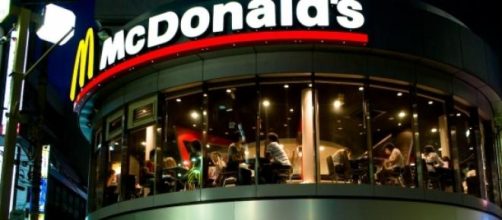There was a fresh scare tothe beleaguered food industry yesterday, after McDonald’s halted sales of ChickenMcNuggets all across Japan, on the identification of a fragment of vinyl in anugget at one of their chains in the administrative district of Aomori, in thecity of Misawa. The company determined that the offending food item came from afacility that produced them for their Japanese outlets located in Thailand, soit limited the stoppage of sales to those sourced from there. McDonald’s areexamining the chicken nugget that has caused the furore at their Tokyo headquarters
McDonald’s Japanese-style hasbeen using nugget production facilities in Thailand after an earlier scandalwhen their previous supplier, the Shanghai Husi Food Company, was linked withpotentially including meat past its expiry date in the food supplied to them.
The disruption follows onfrom another issue the company faced over the sale of French fries at theirJapanese outlets, which are primarily sourced from America (amounting to some$336 million per year) , which led to a brief stoppage in sales of medium andlarge fries to avoid running out of fries completely. That was the result of aprotracted labour (union) dispute at ports on the American West Coast, involvingdockworkers and the Pacific Maritime Association, with the impact of doublingthe time taken to transport loads to Japan. That issue has since been overcomeand sales have resumed of those products, but at the time the fate of mediumand large-sizes of the fries was a major concern to the Japanese market!
Japan is not alone in experiencingscares in the food industry, especially in the sourcing of its meat products.Back in 2012/13, food fraud was effectively found to be happening in Europe, astens of millions of burgers and other beef-related products were withdrawn fromstores, as a horsemeat scandal within the British and Irish food chain wasfound to have occurred. Further claims of out of date meat supplies being usedin food production were also alleged. At the time it was claimed that some ofthe factories used in the supply of what were advertised as beefburgers by Tesco,in fact included as much as 29% horse in their constitution. Besides Tesco,burgers sold by Burger King, the Co-op and Aldi also tested positive for horseDNA with the offending supplier identified as being based in Ireland.
Before that there was themajor food scare when worries abounded about infected products entering the food chain, as a result of what becamecommonly referred to as ‘mad cow disease’ (or BSE) in Great Britain in theearly 1990s. Clearly the Japanese issue needs to be put in context, but it isnonetheless concerning as to how such issues come about, so the results fromthe McDonald’s investigation may prove enlightening in that respect. It doesindicate how difficult it is to be one hundred per cent free of contaminationin food preparation though and one would expect that the least that wouldemerge from the findings into the McDonald’s incident, would be that quality testingand checking procedures would need to be tightened in future.

